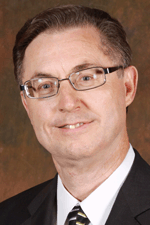Being Pentecostal
“Being Pentecostal” has been a lifetime experience for me. Receiving the baptism of the Holy Spirit with the utterance of speaking in tongues occurred in my life when I was eight years old. In my early years, ridicule and prejudice were frequently experienced.
Little did I comprehend at that initial stage the impact that empowerment would have upon my life and ministry. By 1978, I was deeply involved in the new Charismatic movement and “Jesus festivals” that were sweeping our nation. Serving as an early advisor to Women’s Aglow and the Catholic Charismatic Council, I soon learned that “Being Pentecostal” was far more powerful, diverse, and even a catalyst for unity beyond what we thought possible in those transitional years. Today, God has helped many of us to understand Pentecostalism as more than a small eccentric group of believers—we are now part of the fastest growing segment of Christianity around the globe.
Pentecostals are generally defined as “those affiliated to specifically Pentecostal denominations committed to a Pentecostal theology usually including a post-conversion experience of a baptism in the Spirit.”1 In recent years, it is evident that classical Pentecostals cannot be classified only as those whose basis of belief is in the ‘initial evidence’ teaching.2 The outpouring of the Holy Spirit and its subsequent growth has now rapidly placed South America, Africa, and China into the forefront of the definition and description of “Being Pentecostal.”
With these developments, there is one passage from the Early Church in the New Testament that becomes more enlightening than ever before:
And when they had prayed, the place where they were assembled together was shaken; and they were all filled with the Holy Spirit, and they spoke the word of God with boldness. Now the multitude of those who believed were of one heart and one soul; neither did anyone say that any of the things he possessed was his own, but they had all things in common. And with great power the apostles gave witness to the resurrection of the Lord Jesus. And great grace was upon them all (Acts 4:31–33 NKJV).
This graphic description of one of the earliest outpourings of the baptism of the Holy Spirit provides insightful nuggets to our present knowledge of “Being Pentecostal.”
Being Pentecostal: EMPOWERING
Regardless of your spiritual roots or denominational leanings, no true scholar or church leader can ignore the overwhelming evidence of saints empowered with a bold Christian witness and courage in lifestyle because of the baptism of the Holy Spirit. From the steep mountainous region of Bolivia and the hills of South Korea to the rainforest of Swaziland and the urban center of Los Angeles, entire communities or sometimes nations have been set afire by the manifestation of spiritual gifts that accompanies the Holy Spirit. If “Being Pentecostal” means anything, it is identified by a remarkable presence of the gifts of the Spirit. Although Europe and North America do not see as many of the spiritual manifestations as they once did, it does not detract from the abundance of global evidence that these gifts are on the rise where millions of souls are experiencing this empowerment.
In Acts 4, empowerment is witnessed in key phrases like “the place where they were gathered together was shaken,” “they spoke the word of God with boldness,” and “with great power the apostles gave witness to the resurrection.” While manifestations are desperately needed in a secularized world overwhelmed by relativism and rationalism, Pentecostals must be inspired to be more bold in their testimonies, visible in manifestations of God’s presence, and powerful in actions required to spread the message of the resurrection of Jesus Christ. Labels or claims mean nothing to the subcultures of our world. Unless we take courageous actions and walk with empowered love toward a hurting humanity, Pentecostalism becomes only one more elitist religious cliché that grows tiresome to hear or tolerate. Children of Pentecostals can be empowered with so great a witness that they can stand equal to the apostles in effecting their community institutions. As a young boy and later as a teenager, this was my experience. I had no fear of my peers, my teachers, and the disapproving adults in my church. The Holy Spirit must be allowed to influence this new generation without discouragement from any who feel they cannot be used by God. Pentecostal empowering does not come by age or knowledge but is freely given to those who seek Him. In reality, Christians and churches need an identity transformed by His illuminating power that will attract a world looking for a spiritual solution.
Being Pentecostal: DIVERSIFYING
Sameness, comfortableness, and homogenous congregations were not the norm for the dynamic growth that occurred in the New Testament churches. One thing the Holy Spirit did was radically alter the racial, ethnic, linguistic, and cultural norms. From the Day of Pentecost in Acts 2:5–12, we notice this diversity:
And there were dwelling in Jerusalem Jews, devout men, from every nation under heaven. And when this sound occurred, the multitude came together, and were confused, because everyone heard them speak in his own language. Then they were all amazed and marveled, saying to one another, “Look, are not all these who speak Galileans? And how is it that we hear, each in our own language in which we were born? Parthians and Medes and Elamites, those dwelling in Mesopotamia, Judea and Cappadocia, Pontus and Asia, Phrygia and Pamphylia, Egypt and the parts of Libya adjoining Cyrene, visitors from Rome, both Jews and proselytes, Cretans and Arabs— we hear them speaking in our own tongues the wonderful works of God.” So they were all amazed and perplexed, saying to one another, “Whatever could this mean?”
We see this continuing process of diversification in Acts 10, where the devout believer Cornelius, the leader of an Italian regiment for the Romans, receives the Word of God along with his entire household, including the servants. Again, it is the baptism of the Holy Spirit that distinguishes this new order by God:
While Peter was still speaking these words, the Holy Spirit fell upon all those who heard the word. And those of the circumcision who believed were astonished, as many as came with Peter, because the gift of the Holy Spirit had been poured out on the Gentiles also. For they heard them speak with tongues and magnify God (Acts 10:44–46 NKJV).
Diversity will be the watchword of Pentecostalism in the twenty-first century. Everything will change as language, hermeneutics, influence, education, missions, leadership, and denominations will be transitioning into a new paradigm for the Gospel. Ecclesiastical organizations and local churches will become more multicultural, multi-racial, multi-lingual, and multi-generational if they continue to be relevant, growing, and dynamic. Pentecostal will describe these churches as they will embody these key components that allow the Holy Spirit to take this new spiritual brew and make an effective diversified body that is reaching a multi-grain harvest. “Being Pentecostal” in the twenty-first century requires leaders and congregations to take a vastly different approach if they are to truly identify themselves as Spirit-filled ministries and churches. No one has so concisely summed this up any better than a quote from Leslie Newbigin:
There is, there can be no private salvation, no salvation which does not involve us with one another. In order to receive God’s saving revelation we have to open the door to the neighbor whom he sends as his appointed messenger.3
Being Pentecostal: UNIFYING
If the twenty-first century follows the course that it is now on, “Being Pentecostal” will be one of the most exciting experiences since the first century. All around the world, Pentecostals have been laying down the sword of division, denominationalism, schisms, nationalism, and racism. Instead, there are multiplicities of ministries working together in harmonious efforts. Education, missions, community outreach, and relief agencies are working side by side to accomplish “His kingdom come.” In my own northwest region of the US, I have observed and participated in cross-overs to other church denominations, community organizations, and parachurch groups. We are at an exciting time when Pentecostals share a combined passion to reach the downtrodden, the confused and troubled, the heartbroken and handicapped, the unbelieving and the unchurched. This is a thrilling opportunity if we can realize the unifying ability of the Holy Spirit; it is much deeper than everyone speaking in tongues (even though that is wonderful), but it is allowing others around us to be “astonished” (Acts 10:45) as they see how Christians love one another and band in harmonious efforts to show the love of God to all people.
Many have wondered for years how the Lord would bring about the unity Jesus spoke of in John 17:
I do not pray for these alone, but also for those who will believe in Me through their word; that they all may be one, as You, Father, are in Me, and I in You; that they also may be one in Us, that the world may believe that You sent Me (John 17:20, 21 NKJV).
We thought for years it would be through our own church’s holy conduct and goodness, others thought it would be through ecclesiastical compromises, and still there were those who felt it would be accomplished through perfect hermeneutical understanding of every passage of Scripture; but, these ideas were often self-motivating and self-exalting. In the end, it will be the same Holy Spirit that moved in to unite the early disciples into a powerful force of Pentecostals more concerned about those who needed to hear the Gospel than they were to receive the accolades for being His chosen. If you have ever attended a general mission symposium or an interdenominational fellowship of leaders, you will hear more conversations about what is happening in Pentecostalism than what is going on in their organization. Right now, every minister and church must embrace the move of the Holy Spirit that is stirring around the globe to bring us together in our central precept— being Pentecostal means nothing will happen that is meaningful, nothing will happen that is lasting, and nothing will happen supernaturally, unless we allow the Spirit to have free reign in our gatherings and work! Unity is the result of Holy Spirit receptivity. Stop looking for a human agent to be the catalyst for unity, stop searching for a church group that can attract all other churches, and stop looking for some pseudo-doctrinal sameness; instead, seek the Holy Spirit to come upon you and transform you beyond boundaries and borders that are irrelevant. I’m a Pentecostal who is not ashamed of the Holy Spirit!
1 Patrick Johnstone and Jason Mandryk. Operation World: 21st Century Edition. Carlisle, UK: Paternoster Press, 2001, page 3.
2 Allan Anderson. An Introduction to Pentecostalism. Cambridge, UK: Cambridge University Press, 2011, page 12.
3 Samuel Escobar. The New Global Mission. Downers Grove, IL: Inter Varsity Press, 2003, page 87.



No Comments